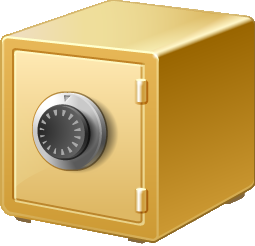 There is no matter what our company’s name is. There is no matter where we work and sell. What matters is the fact that regardless your company name, size and field, as a part of today’s global international market you need your finances to be perfectly controlled, checked and maintained. As a leading company in our individual sphere – again, it does not even matter who we are and what we do, because every single small company, family business or giant international firm needs it – we have been using financial reporting software for years. And when we compare the results from today with those from days, when we did not know about such software product, the conclusion is more than just clear – we have minimized the risk and we have more profits. And we sure that the financial reporting software we have been applied for all of this time is also a part of the success – not only the the advertising campaign or the new business techniques and strategies we have applied. Because sometimes, it takes a little to gain more and sometimes, the issue is small, but the consequences are giant…Just like with our financial reporting software case.. Here is our short brief story of the experience we have with financial reporting software.
There is no matter what our company’s name is. There is no matter where we work and sell. What matters is the fact that regardless your company name, size and field, as a part of today’s global international market you need your finances to be perfectly controlled, checked and maintained. As a leading company in our individual sphere – again, it does not even matter who we are and what we do, because every single small company, family business or giant international firm needs it – we have been using financial reporting software for years. And when we compare the results from today with those from days, when we did not know about such software product, the conclusion is more than just clear – we have minimized the risk and we have more profits. And we sure that the financial reporting software we have been applied for all of this time is also a part of the success – not only the the advertising campaign or the new business techniques and strategies we have applied. Because sometimes, it takes a little to gain more and sometimes, the issue is small, but the consequences are giant…Just like with our financial reporting software case.. Here is our short brief story of the experience we have with financial reporting software.
It was somewhere in the middle line of our success. What I means as a chief manager – back then and still now – is that we were yet a little bit afar from the plans we had and close to the beginning of our business. Something was missing and we have decided to hire business consultant. His first words were “You have an amazing staff, but don’t you think that it is too small and it get tired”…Then it hit me! Indeed, all of my employees are quite well, but the work up until late night and in the evenings the worst mistakes are usually done. The consultant made me believe that I do not even have to change my staff or to fire someone. All I needed is to support and help them with a decent financial reporting software. I bought one – I have changed it through the years several times, because newer and better financial reporting software products appear on the market – and in few months these things have changed in my company:
- My financial department has always a great base to use facts for predictions
- I was never punished for taxes, because all of my financial reports were perfect
- In the beginning the profits did not grow, but the expenses were reduced
- I have a base to step on to grow as to the profits, as well!
- My financial crew was pleased and it got the missing motivation to work harder and harder – as well as the missing physical capacity!
So, I am telling you, guys, with financial reporting software your business will indeed improve! And you will see it very fast!

 Financial trading can get you lots of both – pleasure and money. What you need to do is to manage your trading activity in a most suitable for you and for your schedule way. After all, even if participating in Forex market is now possible to all due to its online transfer, still, there might be some handicaps for you to be always able to make trades. Though, with the expansion of the Forex world and financial trading field in general, new options have appeared for the trader`s convenience, too. Such an extra, for instance, is the mobile financial trading. If you have not tried it yet, now is your time. Though, read our guide as to how trade on the go at first to be prepared enough for this challenge!
Financial trading can get you lots of both – pleasure and money. What you need to do is to manage your trading activity in a most suitable for you and for your schedule way. After all, even if participating in Forex market is now possible to all due to its online transfer, still, there might be some handicaps for you to be always able to make trades. Though, with the expansion of the Forex world and financial trading field in general, new options have appeared for the trader`s convenience, too. Such an extra, for instance, is the mobile financial trading. If you have not tried it yet, now is your time. Though, read our guide as to how trade on the go at first to be prepared enough for this challenge! Remember: Don’t buy too much house! Make sure your mortgage payment, taxes and insurance are around 30% or less of your take-home monthly income—more than that and you won’t have enough wiggle room for monthly expenses plus saving, getting rid of debt and investing. Keep me posted! –C
Remember: Don’t buy too much house! Make sure your mortgage payment, taxes and insurance are around 30% or less of your take-home monthly income—more than that and you won’t have enough wiggle room for monthly expenses plus saving, getting rid of debt and investing. Keep me posted! –C Pictures and news are coming out of California that I never thought I’d see again: lines of people making a run on a bank—a formerly big bank—in a panic about their money. The police were called in as balances and interest disappeared and answers didn’t come fast enough.
Pictures and news are coming out of California that I never thought I’d see again: lines of people making a run on a bank—a formerly big bank—in a panic about their money. The police were called in as balances and interest disappeared and answers didn’t come fast enough.